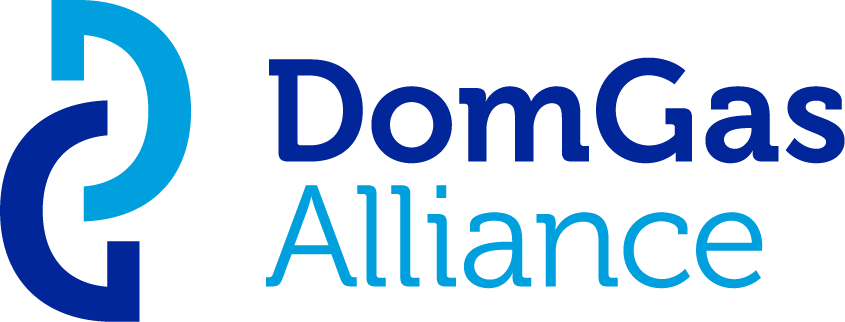
WA State Policy
WA’s gas market is isolated with no cross-border infrastructure. The market is small in comparison to the international liquefied natural gas (LNG) markets, with LNG producers having control over 97% of the state’s gas reserve.
Over 60% of Australia’s recoverable and conventional gas reserves are in WA, located in the Carnarvon and Perth basins. These gas field’s purpose is to support the state’s domestic and export needs.
The WA Domestic Gas Policy
“The WA Government’s Domestic Gas Policy aims to secure WA’s long-term energy needs and ongoing economic development by ensuring that LNG exports also make gas available to the domestic market.”
In September 2024, several key changes were introduced to address growing concerns about domestic gas supply and to encourage new onshore gas developments.
While the State Government continues to apply the policy flexibly, LNG projects must comply and actively demonstrate their ability to meet updated policy conditions to attain project approval. The revised policy now includes the following key elements:
Offshore LNG Projects
For offshore LNG projects, the existing requirements remain largely unchanged:
“Reserving domestic gas equivalent to 15% of LNG production from each LNG export project;
Developing and obtaining access to the necessary infrastructure (including a domestic gas plant, associated facilities and offshore pipelines) to meet their commitments;
Showing diligence and good faith in marketing gas to existing and prospective consumers.”
Onshore Gas Projects
A significant change introduced in September 2024 allows onshore gas developers to export a portion of their production;
New onshore developments or existing projects seeking expansion can export up to 20% of their gas production as LNG until December 31, 2030.
From 2031 onwards, these projects will be required to reserve 100% of their production for the domestic market.
Transparency and Monitoring
To improve oversight and accountability, the government has implemented new measures;
An annual WA Domestic Gas Statement will be published, revealing how producers are meeting their obligations.
A review of the policy changes will take place after two years to assess their effectiveness.
Infrastructure Sharing
To expedite market access for new projects, existing infrastructure holders may be required to share their facilities with other Perth basin producers.
“Use it or Lose it” Policy
The government has initiated a review of the "use it or lose it" policy to prevent companies from banking prospective onshore oil and gas tenements without developing them
Prices and contracts for domestic gas projects will be determined by the market, and any unsold gas must be reserved and made available in support of the state.
These policy updates aim to balance the need for securing Western Australia's energy future while encouraging onshore producers to bring more gas supply online as needed.
Parliamentary Inquiry into the WA Domestic Gas Policy
In June 2023, the Economics and Industry Standing Committee of the WA Legislative Assembly launched an inquiry into the WA Domestic Gas Policy. The inquiry aimed to evaluate the effectiveness of mechanisms ensuring timely domestic gas delivery and market transparency regarding supply and pricing.
This investigation was driven by growing concerns, particularly from the DomGas Alliance, that the policy was failing to enforce its intended 15% gas reservation for the domestic market.
Throughout the inquiry, stakeholders, including the DomGas Alliance, made submissions and participated in public hearings to provide insights.
In its February 2024 interim findings, the Committee, led by Chair Peter Tinley, concluded that the policy was "no longer fit for purpose."
In August 2024, the Committee released its final report, highlighting 77 findings and 30 recommendations, including:
Reaffirming the interim finding that the policy is inadequate to address forecasted domestic gas supply shortages.
Calling for legislative measures to enforce the 15% domestic gas reservation, as LNG exporters were only delivering approximately 8% to the domestic market.
Recommending increased transparency in domestic gas agreements and pricing.
Proposing potential government intervention, including expanding the Australian Domestic Gas Security Mechanism (ADGSM) to Western Australia.
Emphasising the critical role of gas in WA's energy security and economic growth, especially during the transition to renewable energy.
Suggesting ways to improve the timeliness of domestic gas deliveries from LNG projects.
The DomGas Alliance welcomed the final report, viewing its recommendations as a step forward in securing reliable, affordable gas for WA.
The WA government responded to the Committee's recommendations on 19 September 2024.
Downloads
Policy Development & Application
First formalised in 2006, the policy has been updated in 2012, 2020, and most recently in September 2024 following a Parliamentary Inquiry.
Key changes include strengthening enforcement of the 15% domestic gas reservation, introducing a 20% onshore gas DMO for new gas projects versus export until 2030, improving transparency in gas agreements and pricing, and ensuring timely domestic gas deliveries.
Western Australia remains the only state in Australia with such a domestic gas reservation policy, making it unique in safeguarding domestic energy security amidst growing export pressures.
Policy Implementation
The Department of Jobs, Tourism, Science and Innovation implements the policy on behalf of the Minister for State Development, Jobs and Trade.
Implementation involves:
Updating the policy and application- to be in line with the LNG industry development;
Negotiating contractual agreements with exporters;
Monitoring the compliance of the agreement’s implementation;
Keeping the market updated.
There are currently seven domestic gas agreements.
